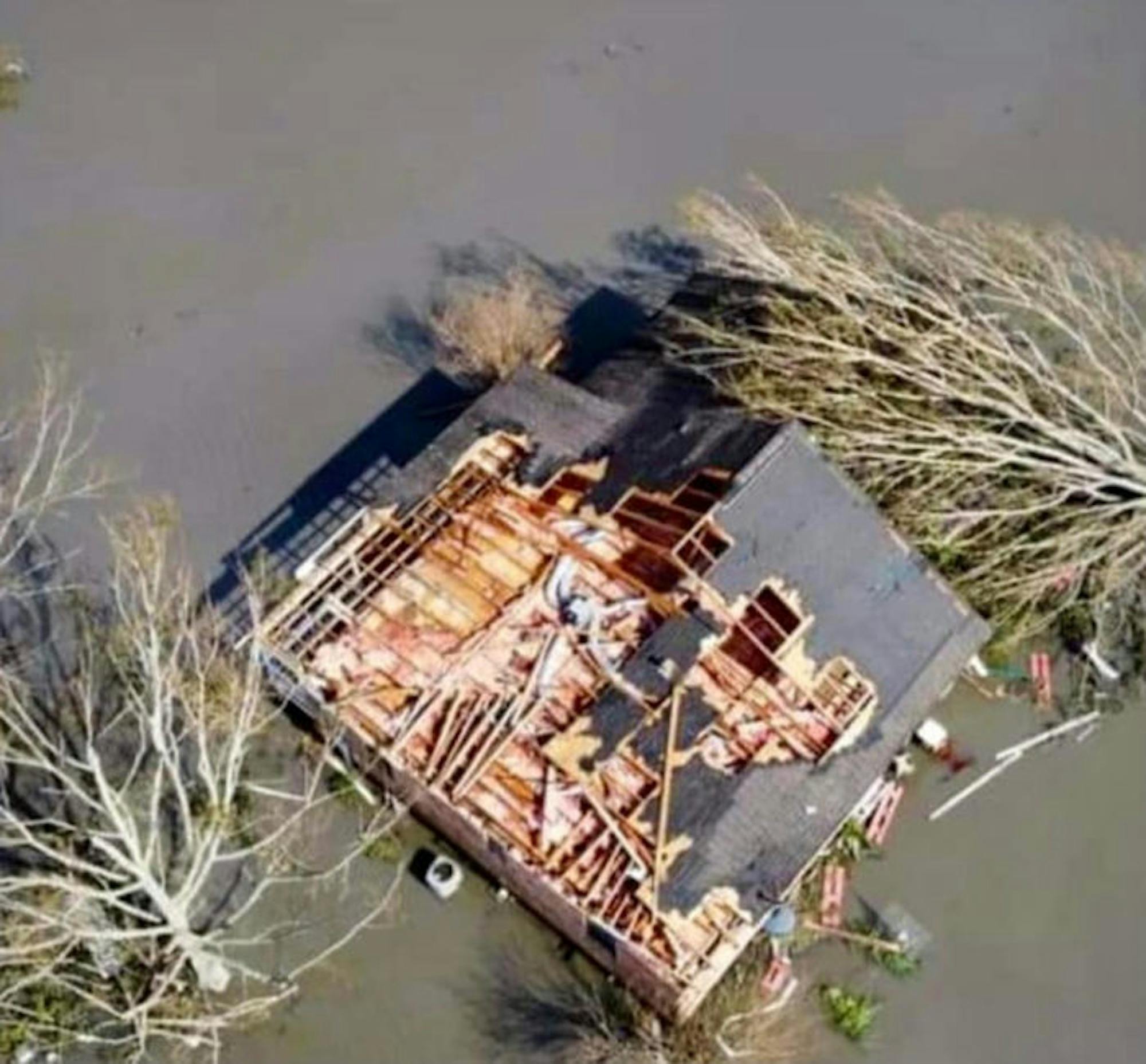When Hurricane Katrina battered southern Louisiana 16 years ago, Notre Dame students from Louisiana were forced to watch from afar as the hurricane devastated their home state while they were on campus. One of those students was Elizabeth Adams, older sister of now assistant director of admissions at Notre Dame Emily LaPlaca.
After Hurricane Ida hit Louisiana Aug. 29, the first thing Emily heard from Elizabeth was advice on how to cope with the stress that comes from being unable to be with her family as they recover from one of the most powerful hurricanes to ever hit the U.S. Emily said this advice has already proved useful because it has allowed her to provide some comfort to students dealing with the aftermath of Ida and empathize with them. One such student is junior Tia Williams.
Williams’ family lives in LaPlace, Louisiana, a small town about 20 minutes northwest of New Orleans. Williams said LaPlace suffered severe flooding largely because the town is yet to have a completed levee system. Her home experienced roughly a foot of water damage and her whole town experienced roof damage, she said, in addition to fallen power lines and trees throughout the area.
Williams said her sister, parents, two aunts, cousin, uncle and grandparents evacuated together in two SUVs up to Memphis, Tennessee. The drive, which Williams said usually takes around 8-9 hours, took an entire day due to traffic. As her family evacuated, Williams said, she felt an urge to hop on the next flight to Memphis to be with them — but her mom quickly shut that idea down. So, she’s processing the disaster from campus.
“It’s been hard to process being here,” Williams said. “Especially thinking about the first time we flooded, that was like the first half of my life that kind of got damaged, and now it’s the second half that’s been a little bit damaged.”
After evacuating their home due to Hurricane Gustav in 2008, Williams said her family typically tries to turn the evacuation into a mini-vacation — to the best of their ability. She said after Gustav her grandparents discovered a restaurant in Memphis with a buffet they loved and decided to go there again after Ida.
“In the circumstances, at least they were able to have a restaurant that they really enjoyed,” Williams said.
The Williams family returned to Louisiana but is staying at a relative’s home in nearby Kenner until the power comes back on at their home in LaPlace and the damage is completely assessed.
LaPlaca’s family evacuated from their home in Cut Off to Lafayette after realizing at about 4 a.m. the morning Ida made landfall Aug. 29 that the storm would be too powerful for them to stay. She said about one-third of her family’s community did not evacuate in order to help with recovery. Her father recently returned to Cut Off to help with the recovery effort and has been primarily sleeping on a mattress on the floor while he works to recover furniture and personal items and assess the damage before repairing it, LaPlaca said.
LaPlaca said damage to Cut Off and the surrounding area has been devastating. She referenced Katrina making landfall as a Category 3 hurricane compared to Ida’s status as a Category 4 when it struck Louisiana.
“It's really terrible down there and it’s just been a nightmare for the community,” LaPlaca said. “Both their homes are destroyed [and] their livelihoods have been destroyed. It’s going to be a really, really long time, I think, before that area recovers.”
Junior Adeline Chappuis’ family didn’t have to evacuate from their home in New Orleans. She said in an email the primary damage to her home was fallen trees. However, watching Louisiana suffer from Ida was still stressful for her.
“When it first happened, all I wanted to do was fly home. My mind wasn’t on homework, classes, clubs. It was on family, but at the same time, being home wouldn’t help the situation down there,” Chappuis wrote.
Although Ida left a relatively mild impact on Chappuis’ home compared to other areas in southern Louisiana, hurricanes have had a lasting impact on her life.
Chappuis said a shrimp boat landed on the side of her home in New Orleans East when Katrina hit. The boat took months to remove and it took years for her house to be repaired.
“The financial stability my parents created for themselves was gone, and they had to take debt after the storm to meet our needs. Had Katrina not happened, we wouldn't struggle so much for me to stay here,” Chappuis said.
She said Katrina still exists as a collective memory for Louisiana, even 16 years later, and as Ida leaves its impact.
As president and vice president of the Louisiana Club, respectively, Chappuis and Williams organized a prayer service near the flagpole on South Quad in the wake of Ida on Sept. 3. The service provided an opportunity for students affected by the storm to gather and reflect.
“That was a really great, small, intimate way to get together and offer support to one another and also just have someone that understands what you’re going through because we can’t be there physically right now,” Williams said.
Chappuis is currently working on organizing a fundraiser for victims of Ida, with the goal of helping both Notre Dame families in Louisiana and the southern Louisiana community.
Despite being far from home and not dealing directly with the effects of Ida, Williams said she still feels deeply connected to home.
“I feel like as college students, you feel kind of far removed from it and there’s nothing that you can actually almost tangibly do for your family or for your community while you’re here,” Williams said. “We knew our state had been devastated, even if we weren’t directly impacted. Louisiana is like one big family.”
This article previously incorrectly referred to the second photo as LaPlaca's family's home. The Observer regrets this error.













